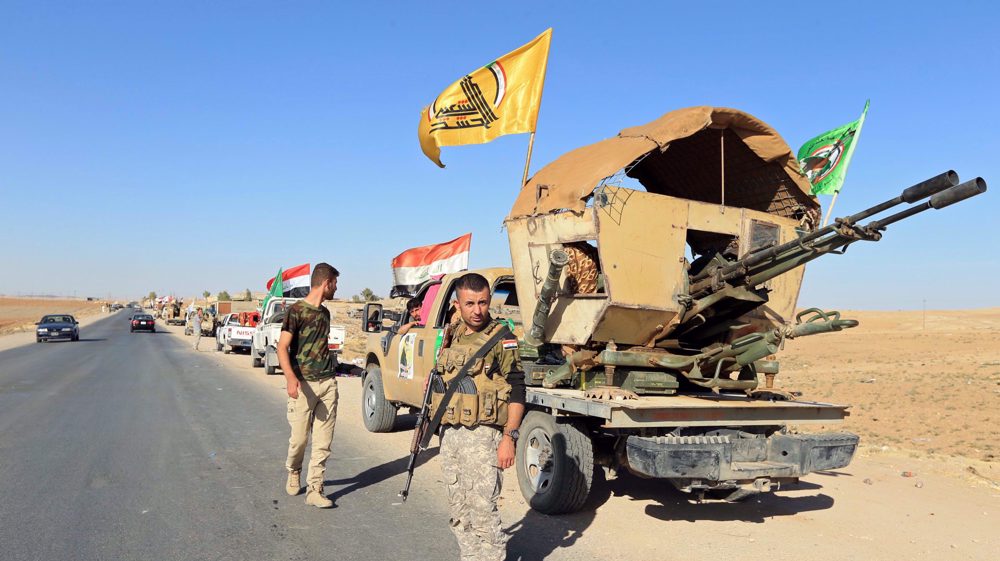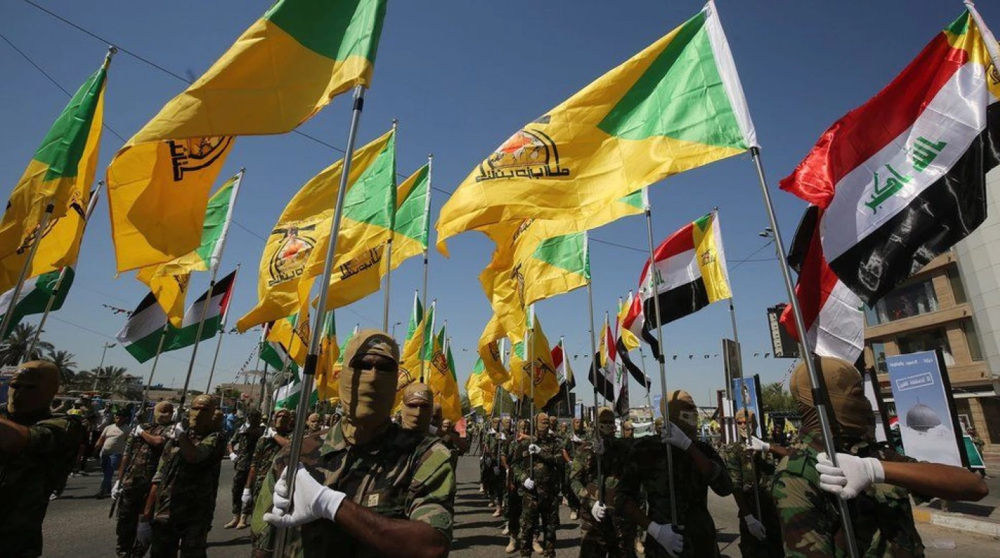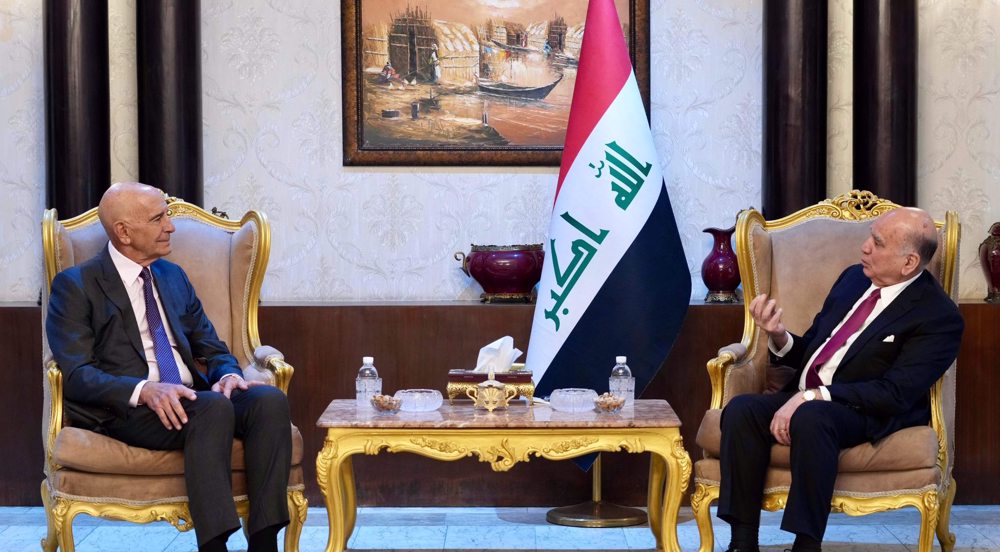Iraqi airstrikes kill nearly dozen Daesh Takfiri terrorists
Nearly a dozen members of the Daesh Takfiri terrorist group have been killed when Iraqi Air Force fighter jets carried out separate airstrikes against militant hideouts in the country's north-central province of Salahuddin.
Iraq's Joint Operations Command spokesman Brigadier General Yahya Rasoul said the military aircraft bombarded two terrorist hideouts and three of their trenches in Gan'ous village near the town of Shirqat, located 300 kilometers (190 miles) north of the capital Baghdad, on Sunday, leaving 10 Daesh Takfiris dead.
Former Iraqi prime minister Haider al-Abadi declared the end of military operations against Daesh in the Arab country on December 9, 2017.
On July 10 that year, he formally declared victory over Daesh in Mosul, which served as the terrorists’ main urban stronghold in Iraq.
In the run-up to Mosul's liberation, Iraqi army soldiers and volunteer Hashd al-Sha’abi fighters had made sweeping gains against Daesh.
Iraqi forces took control of eastern Mosul in January 2017 after 100 days of fighting, and launched the battle in the west on February 19 last year.
Daesh began a terror campaign in Iraq in 2014, overrunning vast swathes in lightning attacks.
Leading figure of Iraq’s Basra protests assassinated
Meanwhile, unidentified armed men have assassinated one of the key figures involved in the protests in the oil-rich Iraqi southern city of Basra against the government and the lack of basic services.
Security sources and witnesses, requesting not to be named, said on Sunday that Sheikh Wissam al-Gharawi was gunned down in front of his home in the al-Muwafaqiya district of the city the previous evening.
There was no immediate claim of responsibility by any militant group.

“Sheikh Gharawi was assassinated after demonstrations started up again in Basra over the past few days,” an unnamed security source told Kurdish-language Kurdistan 24 television news network.
A medical source, speaking on condition of anonymity, said Gharawi was transferred to a nearby military hospital following the attack in an attempt to save his life, but was pronounced dead shortly afterwards.
“Several bullets were extracted from his body,” the source added.
Seven Izadi bodies found in mass grave in Iraq’s Nineveh
Separately, local forces have found a mass grave in the northern province of Nineveh, which contains the bodies of six Izadis believed to have been executed by Daesh Takfiri terrorists when they were in control of an area there.
Mahma Xelil, the mayor of Sinjar, was quoted as saying by the Kurdish-language Rudaw television news network that the discovery was made in Kar Azir town, and that five bodies have been identified so far.
A recent report has disclosed that foreign militants, including many of European origins, were responsible for atrocities and acts of brutality carried out by the Daesh Takfiri terrorist group against members of the Izadi minority.
The Paris-based International Federation for Human Rights said in a report on October 25 that the extremist group's actions amount to genocide and crimes against humanity.
Nadia Murad, an Iraqi Izadi human rights activist and one of the 2018 Nobel Peace Prize laureates, confirmed the findings of the report.
Murad was kidnapped from her hometown of Kojo in the northern Iraqi province of Nineveh in 2014, and held by Daesh terrorists for three months.
Back in August, an official at the Endowments and Religious Affairs Ministry of the semi-autonomous Kurdistan Regional Government said more than 3,000 members of the Izadi minority remained unaccounted for ever since Daesh militants overran their hometowns in northern Iraq in 2014.
“The fate of 3,102 Izadis remain unknown since Daesh terrorists attacked our towns and cities in mid-2014,” Khairi Bozarni said at a conference devoted to the “Izadi Genocide” in the Kurdish capital city of Erbil on August 15.
Bozarni added that more than 2,500 Izadi Kurds had lost their lives at the hands of Daesh Takfiris, while another 6,000 – mostly women and children – had been abducted.
Iranian academic sentenced to 4 years in prison in France for supporting Palestine
VIDEO | Press TV's news headlines
Russia: West seeks to repeat past ‘plunder’ of Iran’s oil
Herzog visits Ethiopia to expand Israeli footprint in Africa
VIDEO | Sunni family's legacy of sacrifice inspires unity, solidarity in Iran
VIDEO | Israeli restrictions force World Central Kitchen to halt Gaza meals
Exclusive: China voices support for Iran’s stability amid US threats
Border guards seize weapons, ammo cache from terrorists in southeast Iran

















 This makes it easy to access the Press TV website
This makes it easy to access the Press TV website